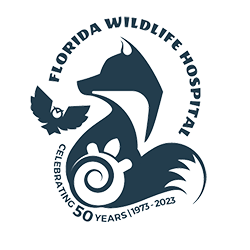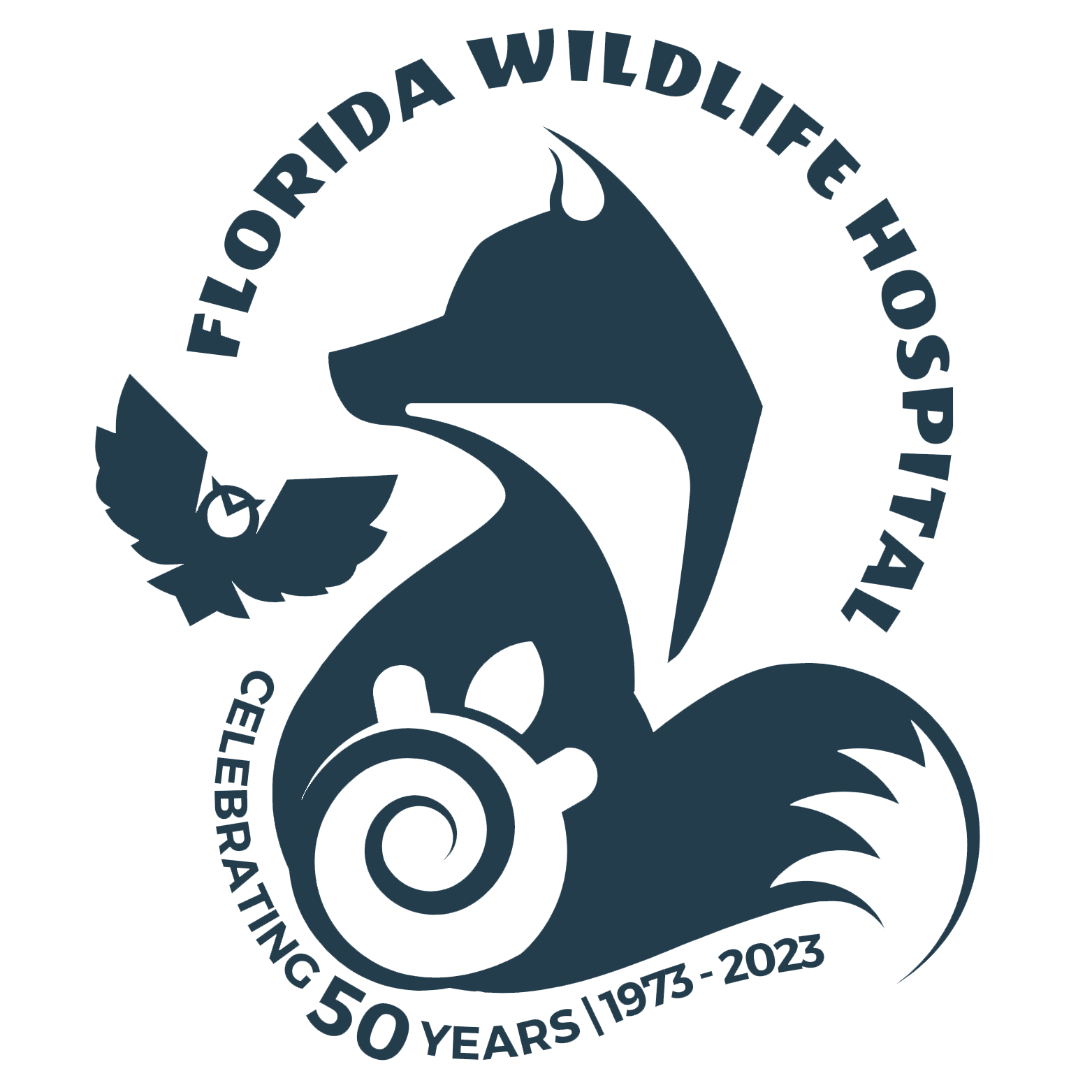Wildlife Help And Advice
Help Keep Wildlife Wild with These Tips
If you find a sick or injured wild animal or a baby animal in need of intervention, please contact the Florida Wildlife Hospital as soon as possible at (321) 254-8843. Staff are available seven days a week, 9 AM to 4:30 PM, to help provide assistance with wildlife issues. Please leave a message if no one answers, as we are often busy assisting patients. Calls will be returned usually within 30 min – 1 hour during regular office hours. You can also check our ONLINE RESOURCES to help the public with wildlife health issues, including how to safely assist injured wild animals, how to tell if a young animal is truly in need of help, and a variety of other information on wildlife issues and living with wildlife.
Wild animals can be dangerous. If you are uncomfortable handling the injured animal, please call Florida Wildlife Hospital for advice. We may send a trained volunteer if one is available, or you may contact your local Animal Services Department. Brevard County Animal Services and Enforcement can be reached at (321) 633-2024 ext. 1.
DO NOT HANDLE raccoons, foxes, coyotes, skunks, bats, otters, bobcats, or unknown dogs and cats. These animals are considered to be high-risk RABIES carriers. Being scratched or bitten by one of these animals may require an expensive series of injections for you, and/or euthanasia and testing for the animal. For more visit: Rabies Species Information
After hours assistance. Please leave the animal in its original box if possible and place in one of the drop off boxes. These boxes get checked regularly. Completing the available paperwork helps staff with a diagnosis and a plan for the potential release. For security reasons, staff will not come out if someone is in the parking lot, so please do not wait.
Healthy, Young Wildlife
Many young wild animals are not in need of “help” from humans at all; they are young animals still receiving care from their parents, or young animals that are ready to live and thrive, on their own. Florida Wildlife Hospital encourages those who care about wildlife to ask questions first about the most appropriate course of action. Learn more here about how to assess if a young wild animal is truly in need of help.
If you find a baby squirrel that has fallen out of its nest and does NOT appear to be injured, you can either find the nest and put it back or leave the baby at the base of the tree. Unlike birds, squirrels and other mammals can pick up and carry their babies back to the nest. Keep away from the area to allow the mother to come down. She will not come down if there are pets and people around. For re-nesting information, please see: Re-Nest is Best! or our Baby Mammal page. If the baby appears sick or injured or has flies or ants nearby, contact FWH immediately.
Why Can’t I Raise Orphan Wildlife Myself?
Professional wildlife rehabilitators have special permits which allow qualified individuals to temporarily possess orphaned and injured wildlife for treatment. Mammals are regulated by the Florida Fish and Wildlife Conservation Commission. Migratory birds are regulated by the United States Fish and Wildlife Service. There are many laws that protect these animals. Taking care of wildlife is a huge responsibility, with each species requiring specialized handling, medications, diet, and caging. Feeding the wrong diet to an animal can be fatal. Many websites contain incorrect information about animal diets and you can do irreversible harm by following their recommendations. If you are interested in wildlife rehabilitation, visit the volunteer page or contact FWH to learn more about volunteer opportunities.
Nuisance Wildlife & Humane Hazing
Hazing wildlife for removal should always prioritize the well-being and safety of both the animals and humans involved. Here are some humane methods for hazing wildlife for removal:
Sensory deterrents: There are various repellents available that use odors, tastes, or textures disliked by animals to discourage them from entering an area. Examples include predator urine, pepper sprays, and ammonia. Do research on what scent may be most effective for the type of wildlife you want to keep away.
Ultrasonic devices: Ultrasonic devices emit high-frequency sounds that are unpleasant to animals but often undetectable to humans. These devices can be effective in deterring certain types of animals without causing harm.
Water deterrents: Some animals are deterred by water. Installing motion-activated sprinklers or setting up water barriers can discourage animals from entering or remaining in specific areas.
Scare tactics: Using scare tactics can startle animals and encourage them to avoid certain areas. This can include deploying motion-activated lights, noise-makers (such as air horns or radios), or visual deterrents (like scarecrows or reflective tape).
Natural deterrents: Certain natural elements, such as predator decoys (which need to be moved on a regular basis so wildlife doesn’t get desensitized to its presence) or plants with strong scents, can help deter nuisance animals. For example, planting marigolds or lavender around a garden may repel rabbits or deer.
Natural barriers: Create physical barriers or modify the environment to make it less attractive to wildlife. This could involve installing fences, blocking entry points, or removing food sources that attract the animals.
Professional assistance: If you seek help from a trapping service, please do your research and make sure you choose an organization that is knowledgeable and responsible, and will not trap and dump a lactating mother, leaving her young behind to starve.
Remember, the goal should always be to resolve conflicts with wildlife in a way that minimizes harm and promotes peaceful coexistence. Consider the specific behavior and habits of the nuisance animals you’re dealing with when selecting deterrent methods. It may be necessary to use a combination of approaches to effectively deter them without trapping or harming them. Additionally, always ensure that any methods used are safe for both humans and animals, and comply with local regulations and laws.



